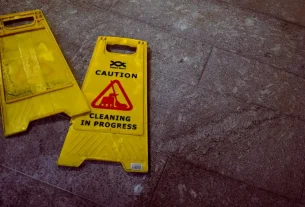Estimated Reading Time: 6 minutes
Estimated Reading Time: 6 minutes
WW all know the feeling – tossing and turning, the clock ticking relentlessly, and the frustration of another sleepless night.
If you’re reading this, chances are you’ve been there.
And if you’re like many health-conscious individuals in 2025, you might be wondering if CBD could be the key to unlocking a good night’s sleep.
The market is flooded with CBD products, and it’s easy to feel overwhelmed.
So, let’s cut through the noise and explore the question: which CBD brand is best for sleep?
This isn’t just about picking a brand; it’s about understanding CBD, its potential benefits, and what to look for in a product that can genuinely help you drift off peacefully.
Before we dive into brands, let’s get our bearings. CBD, or cannabidiol, is a non-psychoactive compound derived from the cannabis plant.
It interacts with the body’s endocannabinoid system (ECS), which plays a role in regulating various functions, including sleep, mood, and pain.
Unlike its cousin THC, CBD doesn’t produce a’high’.
Instead, it works subtly, potentially promoting relaxation and reducing anxiety – two major hurdles to quality sleep.
But does it *really* work? The science is still evolving, but early studies suggest that CBD may help improve sleep in several ways.
Some studies show it may reduce anxiety, a common sleep disruptor. Others suggest it could alleviate pain, another factor that often keeps people up.
It’s important to remember that everyone responds differently, and what works for one person might not work for another.
Therefore, finding the right brand and dosage is crucial.
So, what separates the good from the, well, not-so-good? Several key factors can significantly impact the effectiveness of a CBD product for sleep.
Let’s break them down:
CBD comes in many forms, each with its own advantages. CBD oils, usually taken sublingually (under the tongue), offer fast absorption.
CBD capsules provide a pre-measured dose and are convenient.
CBD gummies are a tasty option, but the added sugars might not be ideal for everyone, especially those with sleep issues related to blood sugar fluctuations.
Topicals (creams, balms) are typically used for localized pain and aren’t the best choice if your primary goal is improved sleep.
Personally, I’ve found that sublingual oils work best for me. I can easily adjust the dosage, and I feel the effects within a reasonable timeframe.
I remember one evening, after a particularly stressful day at work, I struggled to relax.
A few drops of CBD oil before bed helped me to wind down and actually *sleep*.
However, a friend swears by capsules for their consistency, making this is a very individual thing.
This is where things get a little more specific.
The concentration of CBD in a product (measured in milligrams) will determine how much you’re actually taking per dose.
Finding the right dosage is a trial-and-error process, as individual needs vary widely.
Start low and gradually increase the dose until you find what works for you.
It’s always best to follow the product’s instructions and, ideally, consult with your doctor or a qualified healthcare professional, particularly if you are on other medications.
This is non-negotiable. Always choose brands that provide third-party lab test results.
These tests verify the product’s CBD content, confirm the absence of harmful contaminants (pesticides, heavy metals), and ensure the product meets its advertised claims.
Look for a Certificate of Analysis (COA) on the brand’s website or product packaging. Without this, you’re essentially taking a leap of faith.
This refers to the different types of CBD extracts:
For sleep, many people find full-spectrum or broad-spectrum CBD most effective, possibly due to the entourage effect.
However, it really depends on individual preferences and tolerance.
Do your homework! Research the brand’s reputation. What do other customers say about their products and customer service?
Websites like Trustpilot and Reddit can be invaluable resources for honest reviews. Look for brands with a solid track record and positive feedback.
While I cannot endorse specific brands due to legal and ethical considerations, I can provide a framework based on the factors discussed above.
When researching, consider reputable brands that tick most, if not all, of the following boxes:
Again, it’s essential to do your own research and choose the brand that best aligns with your needs and values.
There are many myths surrounding CBD. Let’s bust a few:
CBD is just one piece of the puzzle. To truly optimize your sleep, consider these additional lifestyle factors:
The journey to better sleep is personal. When it comes to which CBD brand is best for sleep, there’s no single, definitive answer.
It’s about finding the right product, the right dosage, and integrating it into a holistic approach to sleep hygiene.
I’ve found that focusing on quality, transparency, and consistency is key. Remember, patience is a virtue.
It may take time to find the perfect CBD product and dosage. But the rewards – restful nights and energized days – are worth the effort.
The market is constantly evolving, so continuous research is vital to stay informed.
Don’t be afraid to experiment, listen to your body, and prioritize your sleep. You deserve it!
If you’re looking for more tips and tricks on natural wellness and achieving better sleep, don’t forget to join our newsletter for weekly health tips!
Frequently Asked Questions
Can CBD completely cure insomnia?
No, CBD is not a cure-all for insomnia. While it may help manage symptoms like anxiety or pain that contribute to sleep problems, it’s not a guaranteed fix. Insomnia often has multiple causes, and a comprehensive approach involving lifestyle changes, sleep hygiene practices, and potentially professional medical advice is often required for long-term solutions. Furthermore, CBD’s effects can vary from person to person.
Is it safe to take CBD every night?
Generally, yes, it is considered safe for most people to take CBD every night. However, it’s always recommended to consult with your doctor first, especially if you are taking other medications. Monitor how your body responds and adjust the dosage accordingly. Some people experience side effects, such as drowsiness or digestive issues, so it’s crucial to pay attention to your body’s signals and discontinue use if necessary. Choosing high-quality, third-party tested products is also vital for safety.
How long does it take for CBD to work for sleep?
The time it takes for CBD to affect sleep varies significantly depending on several factors, including the product type, dosage, individual metabolism, and the severity of your sleep issues. Some people feel effects within 30 minutes to an hour, especially with sublingual oils or vaping. Others might need to take CBD consistently for several days or weeks to notice a significant improvement in their sleep quality. Start with a low dose and gradually increase it while monitoring your sleep patterns to determine the optimal timing and dosage for you.
Are there any side effects associated with taking CBD?
Yes, while CBD is generally considered safe, some people may experience side effects. These can include drowsiness, fatigue, changes in appetite, diarrhea, and dry mouth. These side effects are usually mild and temporary. In rare cases, CBD can interact with other medications, so it’s essential to talk to your doctor, especially if you’re taking other drugs. As always, start with a low dose, monitor your body’s reactions, and discontinue use if you experience adverse effects that persist or worsen.




